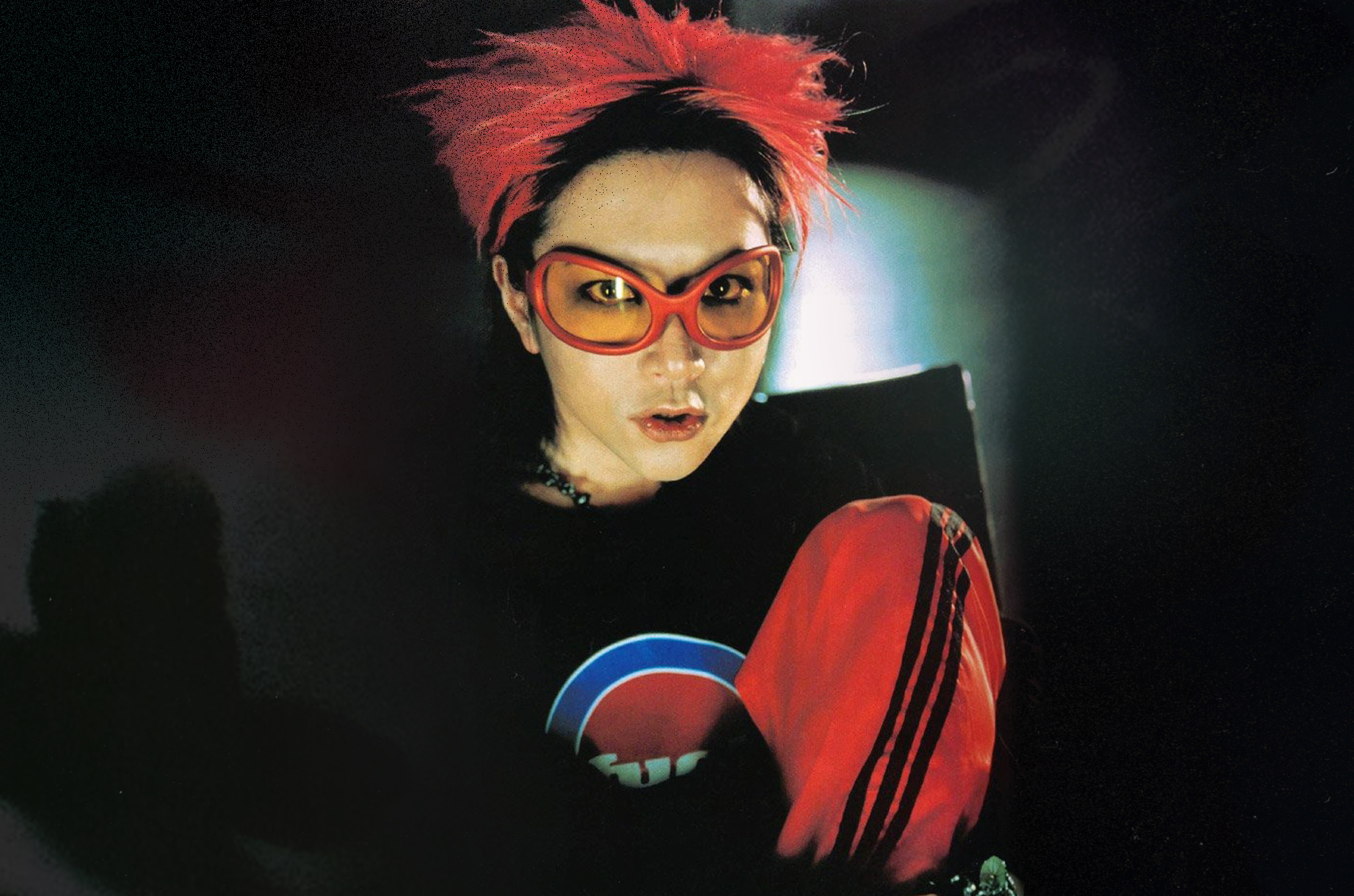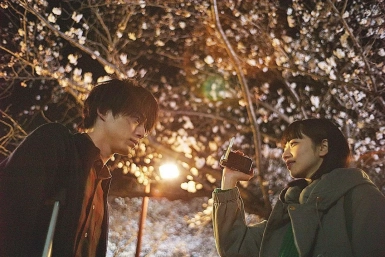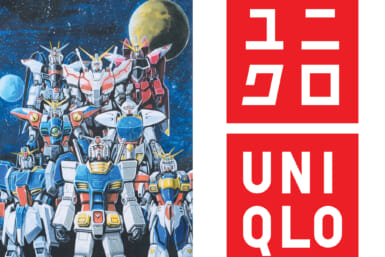X Japan’s legendary guitarist, Hideto Matsumoto, commonly referred to as Hide (stylized as HIDE and hide), would have turned 60 today. Sadly, he passed away in 1998 at the age of just 33. His death, according to Asia Week writers Alexandra A. Seno and Mutsuko Murakami, “produced scenes of grief and hysteria not witnessed for a music star since the war.”
Hide, who also achieved success in Asia as a solo artist and formed the US-based supergroup Zilch, was one of the pioneers of the glam rock-influenced visual kei movement. In a conformist nation like Japan, his enigmatic and rebellious personality stood out, and he continues to inspire artists today, more than a quarter of a century after his death. In our latest Spotlight article, we look back at the life and career of one of this country’s most revered guitarists.
Hide’s Pre-X Years
Born in Yokosuka, Kanagawa Prefecture, on December 13, 1964, Hide was given a hard time during his school days because he was much bigger than the other students. During recess, he was forced to run around the school field with fellow overweight children, while everyone else played. Discovering music through late-night radio, he eventually decided to go on a diet, as he believed rock stars needed to be thin.
When he was 15, Hide’s grandmother bought him his first guitar: a Gibson Les Paul Deluxe. A couple of years later, he formed the band Saber Tiger (later known as Saver Tiger), which was heavily influenced by the American rock group Kiss. During his time with the band, the guitarist obtained a beautician’s license to follow in his grandmother’s footsteps. With the group constantly changing members, a frustrated Hide decided to quit Saver Tiger in January 1987 and planned to become a hairstylist. That was when Yoshiki came calling.
Joining X
Less than a month after finishing with Saver Tiger, Hide joined X. Yoshiki Hayashi and Toshimitsu Deyama (usually referred to as Yoshiki and Toshi, respectively) established the group in 1982, and for the first few years, were the only permanent members. Despite being panned by critics, their shows attracted large crowds, and the pair felt it was time for a more settled lineup. After bassist Taiji Sawada rejoined the band in 1986, their next target was a lead guitarist. They needed someone who was not only highly skilled but also had a real presence on stage. Hide fit the bill.
Rhythm guitarist Pata (Tomoaki Ishizuka) completed X’s first well-known lineup, and in April 1988, the band released Vanishing Vision, its debut studio album. Within a few years, X had established itself as one of the most successful rock groups in Japanese history thanks to albums like Jealousy and Art of Life, which both topped the Oricon Chart. In between the release of those two records, the band changed its name to X Japan to distinguish itself from the American punk group X.
While main songwriter Yoshiki was viewed as the figurehead of the band, for many fans, Hide was the spiritual leader. As well as being regarded as one of the country’s most highly accomplished guitarists, he was seen as a symbol of rebellion and individuality. Known for his extravagant costumes and flaming pink hair, he was considered a trailblazer in the music industry and the face of the visual kei movement, which is said to have gotten its name from the slogan, “Psychedelic violence crime of visual shock,” which appeared on X’s second album, Blue Blood.
Going Solo
In 1993, X Japan announced that all its members would be pursuing solo careers, while occasionally continuing to perform with the band. For Hide, the second most credited songwriter in the group, it was time to take center stage. After working on his voice with Toshi’s vocal coach, he released his debut album, Hide Your Face, in February 1994. An alternative rock record that sounded very different to X Japan, it proved extremely popular, selling over 500,000 copies, which meant it was certified double-platinum by the Recording Industry Association of Japan (RIAJ).
In 1996, Hide released the chart-topping album Psyence, which also exceeded half a million in sales. One of the standout singles from the record was “Misery,” which was said to have been written about Mayuko Kishi, a teenage girl suffering from a rare terminal disease called GM1 gangliosidosis type 3. She was given the opportunity to meet her hero Hide via the Make-a-Wish Foundation, and the pair became close friends. In the summer of 1996, Hide registered as a bone marrow donor.
That same year, he formed the rock supergroup Zilch, with Ray McVeigh (The Professionals), Joey Castillo (Queens of the Stone Age), Paul Raven (Killing Joke) and Kazuhiko Inada (Hide with Spread Beaver). The group’s debut album, 3.2.1., released two months after Hide’s death, reached number two on the Oricon chart. Also in 1996, Hide founded the independent record label Lemoned (now known as Lemoned Plant). The first band he signed was the alternative rock group Zeppet Store. Years earlier, Hide had introduced bands he liked, such as Luna Sea and Glay, to Yoshiki’s label, Extasy Records.
Hide’s Death
With lead singer Toshi leaving X Japan to join a mysterious cult-like group called Home of Heart, the other members of the band held a press conference in September 1997 to announce that the group was disbanding. They played their last live show with Hide at Tokyo Dome on the final day of that year. Speaking to Tokyo Weekender in 2022, Yoshiki said he met with Hide after that to discuss finding a new singer for X Japan 2. Tragically, before the wheels were in motion, Hide had passed away.
On the evening of May 1, 1998, Hide and members of his backing group, Spread Beaver, went out drinking after doing some television work. At around 6:30 a.m. the following morning, Hide’s brother, who was also his manager and chauffeur, drove him home. An hour later, he was found slumped with his head hanging from a towel tied to a doorknob. He was rushed to the hospital, but it was too late. The revered guitarist was pronounced dead at 8:52 a.m. He was 33.
No suicide note was left and many of his friends, including former bandmates Yoshiki and Taiji, believed it was an accident. In his autobiography, the latter theorized that Hide had been practicing a technique to relieve upper back and neck pain and inadvertently strangled himself after falling asleep due to being in an intoxicated state. The authorities and the media, however, saw things differently and reported that Hide, who was rumored to have suffered from bulimia and bipolar disorder, had taken his own life.
A Nation in Mourning
Tens of thousands lined up for Hide’s funeral, which took place at Tsukiji Honganji in Tokyo on May 7. “I still can’t believe it,” said Yoshiki during his speech at the ceremony. “I’ve tried to wake him up again and again, but still, he sleeps… It was Hide who always gave me good advice. Of course, he sometimes lost his way under various pressures, but he always called me anyway. We talked about X, life, fans… Sometimes he was like my elder brother, sometimes he was like a little brother… I think all his fans and friends are confused now… I myself cannot express my feelings in words.”
Eleven days after his death, the Hide with Spread Beaver single “Pink Spider” was released, entering the Oricon chart at number one. Two weeks later, it was knocked off the top of the chart by “Ever Free,” another Hide with Spread Beaver track. In May 1999, Tribute Spirits, an album featuring covers of Hide’s songs by bands such as Luna Sea and Oblivion Dust was released. Just over a year later, a Hide museum was opened in his hometown of Yokosuka. A big fan of X Japan, the then-prime minister, Junichiro Koizumi, was reportedly influential in getting it built.
To mark the 10th anniversary of his passing, the Hide Memorial Summit took place at Tokyo’s Ajinomoto Stadium on May 3 and 4, 2008. As well as a reunited X Japan, there were performances from the likes of T.M. Revolution, Dir En Grey and Versailles. The bands Luna Sea and Phantasmagoria even reunited just for the event. Hide was that influential. A true original and national treasure, he was taken far too soon. His music, though, will live on forever.









